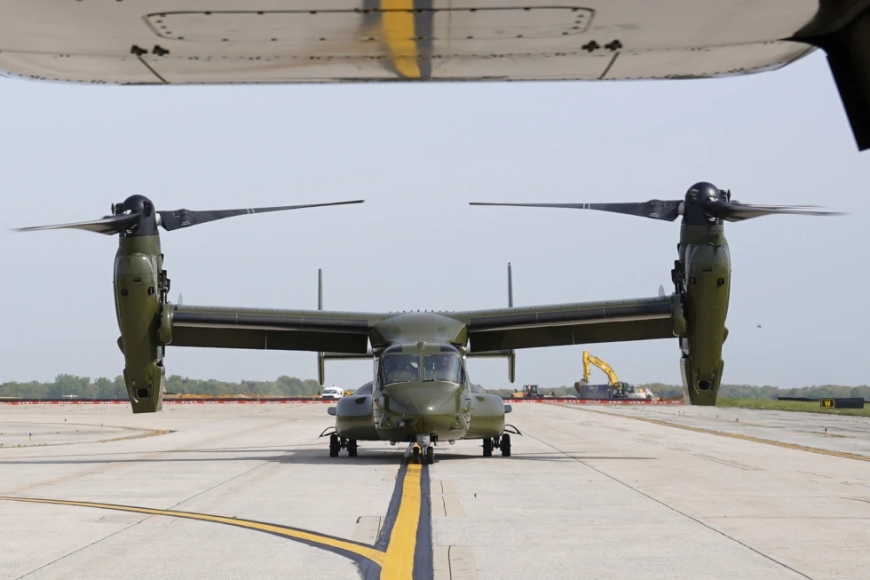Japan’s Defense Minister Minoru Kihara confirmed on Friday that Japan will continue operating the V-22 Osprey aircraft despite ongoing safety assessments and flight restrictions in the United States. This decision comes in the wake of several fatal crashes involving the aircraft.
Kihara assured that both Japanese and American Ospreys are being safely operated in Japan. "We have no intention to seek a suspension of the operation," Kihara stated, emphasizing the enhanced safety measures and rigorous maintenance protocols currently in place.
This announcement follows recent remarks by Vice Adm. Carl Chebi, head of U.S. Naval Air Systems Command, who indicated that U.S. Ospreys would not be cleared for their full range of missions until at least 2025. The Pentagon is addressing several safety concerns, including clutch failure issues linked to a fatal crash in California in 2022.
The Osprey, known for its unique ability to fly like an airplane and land like a helicopter, has faced scrutiny due to its safety record. Over the last two years, four crashes have resulted in the deaths of 20 service members. A House subcommittee on National Security, the Border and Foreign Affairs is scheduled to hold an oversight hearing on the Osprey’s safety record and the Pentagon’s management of the program on June 12, 2024.
Following a fatal crash off Japan’s southern coast in November, which killed eight U.S. servicemembers, the fleet was grounded for four months. Flights resumed in March with upgraded safety checks and other precautionary measures, although full mission capabilities, including carrier operations, remain restricted.
Japan hosts 29 U.S. Ospreys under its bilateral security alliance and operates 14 Ospreys through its Ground Self Defense Force. These aircraft resumed flights in mid-March after completing necessary maintenance and further pilot training.
Addressing inquiries about potential restrictions on Osprey operations in Japan, Kihara cited national security reasons for not disclosing specific details. He also mentioned that Japanese officials are seeking further clarification from Washington regarding Chebi’s comments to the U.S. Congress.
Despite the Osprey’s controversial safety record, which has resulted in 64 fatalities and 93 injuries since its introduction in 2007, Japan remains committed to its operational use, ensuring that all necessary safety measures are stringently followed.














































